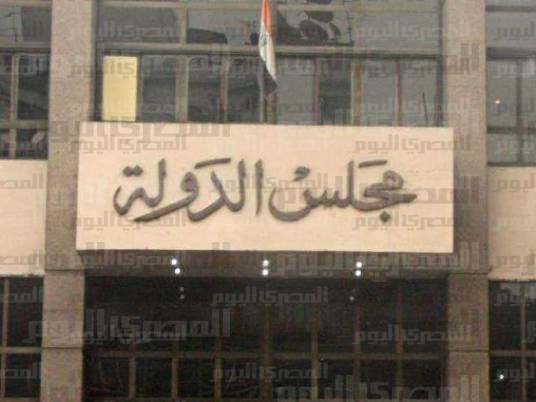
The Emergency General Assembly of the State Council commissioned on Monday the special council, which is the highest administrative authority of the State Council under the chairmanship of Judge Mohamed Massoud, to meet President Abdel Fattah al-Sisi over the crisis of amendments to the Judicial Authority Law.
Judges object to the amendments, saying they undermine the independence of the judiciary authority.
The General Assembly issued a statement on Monday saying: "The current Constitution has explicitly and unequivocally stressed through its provisions the principle of independence of the judiciary; and it has made 'interference in the affairs of justice or judicial cases' a crime with no statute of limitations."
The Constitution also states that each judicial authority has the right to select its presidents, the statement added.
The executive authority has no right to interfere with the election of the Speaker of the House of Representatives or his deputies in accordance with the principle of the separation of powers, and similarly, it has no right to intervene with the selection of heads of judicial bodies, the statement added.
The statement reiterated the clear refusal of the General Assembly of the amendments which was seen as affecting the independence of the judiciary.
The Parliament's decision to approve the draft amendments to the Judicial Authority Law, regarding how heads of judicial bodies are appointed, ignited a state of anger and resentment among masses of judges earlier across all official bodies.
Some MPs objected about the speed at which the bill was discussed and passed; and the way it was passed without informing the judicial authorities ahead of time of the details of the amendments introduced by the parliamentary committee.
The new draft law reportedly stipulates that the president will appoint the heads of the judiciary authorities by a decision, choosing from among the three vice-chairmen of each judicial body, nominated by the supreme council of that body from among the oldest seven deputies.
Judges called the law a violation of the independence of the judiciary and an unnecessary change in what are stable norms and traditions, in choosing the head of each body according to the rule of seniority and not in the ways stipulated in the new amendments introduced to the law.




